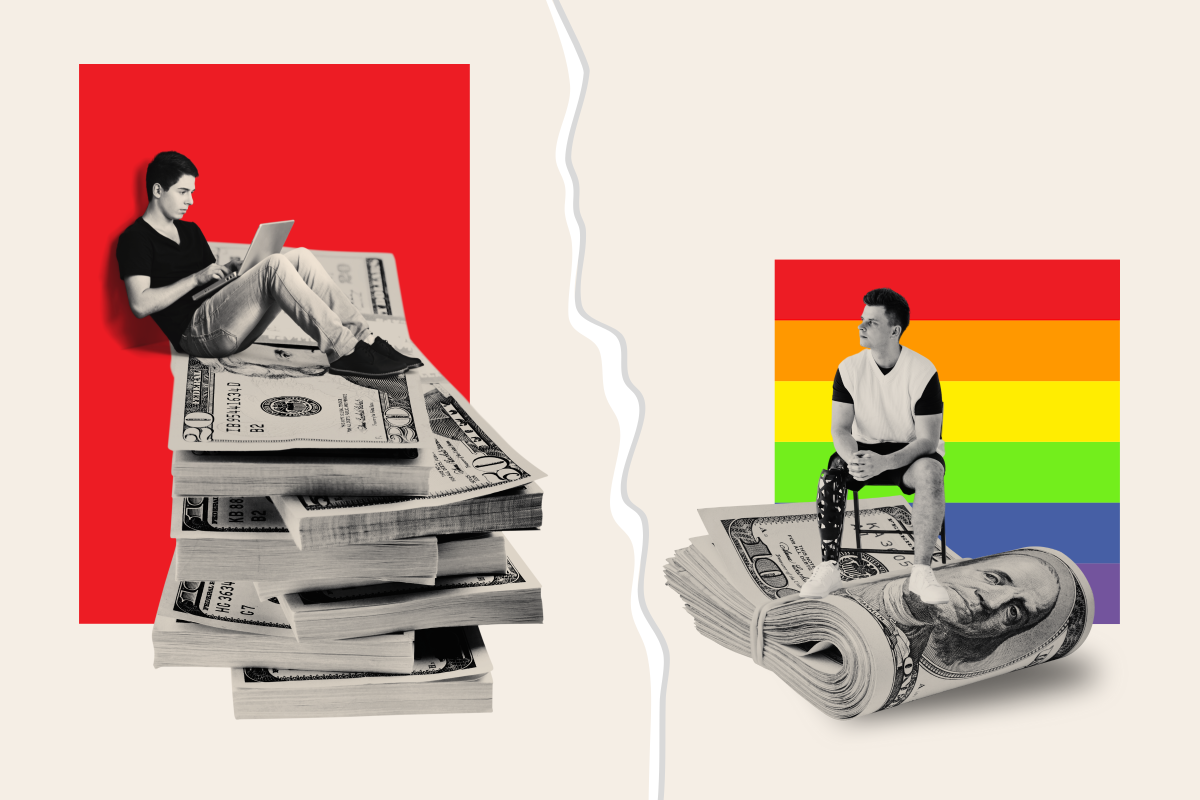LGBTQ+ workers are being paid only 90 percent of the wages of the typical U.S. worker, according to a report.
A Human Rights Campaign (HRC) analysis of nearly 7,000 full-time LGBTQ+ workers found that their median weekly earnings come in at approximately $900—around 10 percent less than the $1,001 median weekly wage reported for a "typical worker." In other words, these workers earn around 90 cents for every dollar earned by their colleagues.
The report also found that men in this community earn 96 cents for every dollar the typical worker earns. For identifying women it was 87 cents, and 70 cents for nonbinary, genderqueer, gender-fluid, and two-spirit (Indigenous people who identify as having both a male and female spirit) workers.
Black community members were found to earn less than the median weekly earnings for LGBTQ+ colleagues, receiving only 80 percent of what typical workers get. This figure fell even further for LGBTQ+ Native Americans plus transgender men, who are estimated to earn only 70 percent, while transgender women were paid just 60 percent of the typical worker's salary.
"Though we did not assess the underlying reasons for this disparity, discrimination is likely playing a role," the HRC said in the report.

LGBTQ+ advocates, campaigners, and business leaders said the report should be seen as a "rallying cry" for "all who lead."
"As a lesbian CEO, I'm frankly tired of seeing reports like the recent HRC Foundation analysis that show LGBTQ+ workers earn just 90 cents for every dollar their peers make," Amy Spurling, founder and CEO of startup Compt, told Newsweek. "And let's be clear: the inequity stretches far beyond LGBTQ+ individuals—it spans across genders and races, too. This isn't just disappointing, it's a rallying cry for all of us who lead."
"The findings from the HRC Foundation analysis are indeed troubling, especially as they shed light on the compounded challenges faced by transgender and nonbinary individuals, whose earnings lag even further behind in the economic landscape," Elijah Nicholas, founder of The Global Trans Equity Project, told Newsweek.
Read more: Best Place for Short-Term Investing: CD vs. High-Yield Savings Account
"The wage gap for transgender and nonbinary individuals is not just a disparity in numbers but a stark representation of the systemic barriers that limit our access to economic mobility and opportunity. This gap exacerbates other challenges, including higher rates of unemployment and underemployment, health care inequities, and increased vulnerability to poverty."
Nicholas said that mending the pay gap "is not just about achieving economic parity" but is absolutely "critical to fostering a society that values and respects all its members equally, regardless of gender identity or expression."
"It is essential for policymakers, businesses, and civil society to work together to dismantle the barriers that perpetuate these inequities," he said.
Spurling agreed and said, "To the leaders out there still dragging their feet: it's past time to step up. Conduct those pay audits, commit to real change, and invest in your LGBTQ+ employees. Actually, invest in your employees, period. We need to do more than lament these statistics; we must obliterate them. Closing pay gaps isn't enough. People deserve workplaces where their value is recognized equally and unequivocally."
Ariella R. Rotramel, associate professor of gender, sexuality and intersectionality studies at Connecticut College, told Newsweek that the pay gap is "just a starting point" for the discussion of LGBTQ+ discrimination in the workplace.
"The most important element of this report is to recognize that the pay gaps are much deeper when considering race, identity as a woman, and/or trans and related identities. The 90 percent pay gap is just a starting point for the discussion and, to me, as a researcher and professor, obfuscates the major issues that interact with sexual orientation-based discrimination—particularly transphobia, racism, and sexism."
Rotramel also detailed some of the discrimination they have faced on account of their sexuality and gender identity outside of the pay issues the HRC analysis raises. They said the report is unlikely to come as a surprise for those in the LGBTQ+ community.
"I have experienced overt job discrimination across my employment history—including having a coworker, without asking me, lie to our boss about my sexual identity to prevent them from firing me, and being told after a job interview by people with a close relationship to an organization that my gender presentation was not going to be welcome," Rotramel said.

